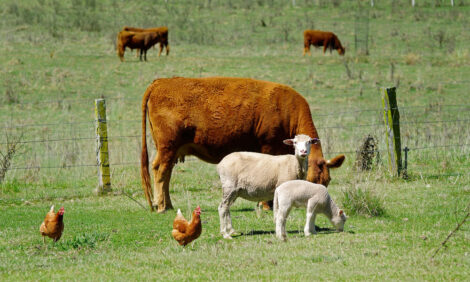



China's PPI Rises 6.3%; CPI Up 1.8% in August
CHINA - China's consumer inflation picked up in August, driven by higher food prices, while the factory-gate prices also rose, fueled by rising commodity costs.Consumer price index (CPI), a main gauge of inflation, accelerated more than expected to a seven-month high of 1.8 per cent in August, up from July's 1.4 per cent, beating market expectation of 1.6 per cent, according to data released by the National Bureau of Statistics (NBS) Saturday.On a monthly basis, the index was up 0.4 per cent last month.
For the first eight months of the year, CPI climbed 1.5 per cent from one year earlier.
The stronger, yet still moderate, inflation remained well below the government's annual inflation regulation target of around 3 per cent for 2017.
On a monthly basis, CPI was up 0.4 per cent last month.
NBS chief statistician Sheng Guoqing attributed the faster CPI growth to higher food prices as adverse weather pushed up vegetable prices while falling output led to sharp growth in egg prices.
Food prices, the biggest component of the CPI, were up 1.2 per cent month-on-month, NBS said.
Vegetable prices rose 8.5 per cent from July as scorching summer and widespread heavy rains increased transportation costs. Egg prices climbed 13.5 per cent from July while the prices of pork, a staple meat in China, rose 1.3 per cent month-on-month.
Year-on-year, food prices edged down 0.2 per cent in August, while non-food prices gained 2.3 per cent.
Excluding volatile food and energy prices, the core CPI increased 2.2 per cent year-on-year in August, up slightly from July's 2.1 per cent. The core CPI has been holding steady at a little above 2 per cent since March.
Analysts said the pick-up in consumer inflation is unlikely to continue because of a high comparative base in September 2016 and the fading effects of seasonal factors during the rest of the year.
Jiang Chao, chief economist at Haitong Securities, said the CPI increase would ease to 1.6 per cent in September and remain subdued for the whole year.

Producer price index (PPI), which measures costs of goods at the factory gate, rose to a four-month high of 6.3 per cent in August, compared with 5.5 per cent in July, according to NBS.
PPI growth, which was higher than the market forecast of 5.7 per cent, was boosted by increases in the prices of steel, non-ferrous metals, as well as oil and natural gas.
On a month-on-month basis, the index was up 0.9 per cent last month.
Producer prices accelerated upward, a significant positive sign for China's economy, which will help drive profits higher and enable companies to process their debt burden a little more easily, Bloomberg chief Asia economist Tom Orlik said.
However, Mr Orlik said factory sector reflation remained vulnerable. The sector breakdown showed factory reflation was benefiting mainly upstream industries, with downstream industries squeezed.
PPI grew 6.4 per cent year-on-year for January-August, unchanged from that in the first seven months.
Mr Orlik expected the central bank to continue dealing with the deleveraging challenge, not to hasten monetary easing.












